
Boost Your Memory And Mood With Caffeine
Your usual cup of coffee does more than just give that instant boost of energy. It can have a positive effect on retention as well as lift your mood. There are skeptics who believe that caffeine actually has a negative effect on the brain. However, numerous studies have proven that it actually has a positive effect on your memory and mood. A 2006 study published in the Journal of Neuroscience conducted on mice found that caffeine may offer cognitive protection against Alzheimer's disease. So, if you want to keep your brain healthy even in old age, you may want to continue drinking your cup of coffee.
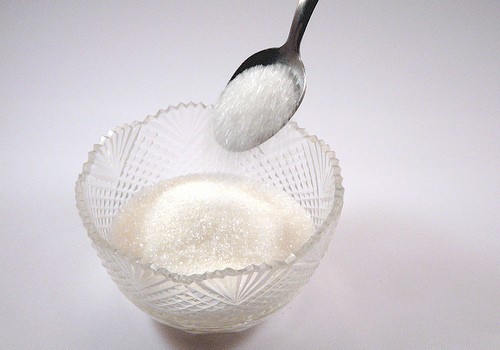
Consume Naturally Occurring Sugar
Over-consumption of sugar is linked to depression, poor memory and learning disorders. However, this "over-consumption" is actually related to refined sugar or added sugar found in processed food. Keep in mind that our brain along with our body requires sugar to carry out its daily functions. Naturally-occurring sugar, such as those found in fruits and grains are converted into blood sugar or glucose. The cells of the brain derive energy from this glucose to keep on functioning normally. Simply said, no sugar means no energy for proper brain functioning which can lead to poor memory and poor mood. So, make sure to include sugar as a regular part of your diet.
- Important notification about information and brand names used in this slideshow!
- Photo courtesy of Judy van der Velden by Flickr : www.flickr.com/photos/judy-van-der-velden/6789898978/
- www.apa.org/monitor/mar00/brainbox3.aspx
- www.forbes.com/sites/daviddisalvo/2012/04/01/what-eating-too-much-sugar-does-to-your-brain/

Don't Forget To Eat Breakfast
As mentioned earlier, our brain needs a regular supply of glucose to function normally. After fasting all night, the brain requires a fresh supply of glucose. If you skip eating breakfast, your brain is deprived of its necessary fuel. So, the body needs to work extra hard by breaking down stored carbohydrate or turning fat into a form that can be used by the brain. This is why it is important that breakfast is eaten within the first two hours of waking up, especially for kids. Breakfast increases your concentration and problem-solving capabilities and also enhances memory and mood. A glass of fresh fruit or vegetable juice or a fruit, oatmeal or whole grain cereal will provide the body and brain the necessary fuel to keep on functioning normally throughout the day.
- Important notification about information and brand names used in this slideshow!
- Photo courtesy of Kendra by Flickr : www.flickr.com/photos/chaparral/2203224077/

Include Fish In Your Diet
Several studies have linked fish with reduced risk of Alzheimer's disease. Fish is rich in omega-3 fatty acids. It is believed that this is the nutrient which may be responsible for the cognitive protection offered by fish. Regular consumption of fish seems to prevent cognitive decline in the aging and may prevent diseases such as dementia. Consume cold-water fish to get your regular supply of omega-3 fatty acids at least one to four times a week. Cold-water fish include halibut, mackerel, tuna, and salmon. The best way to eat fish is baked or broiled since these cooking processes retain the healthy nutrients present in fish. Avoid fried fish since it has been found to have no or little effect on memory and mood.

Don't Forget To Go Nuts!
If you love nuts and are chomping on these on a regular basis, you are doing your brain a great favor. Nuts, especially walnuts, are rich sources of antioxidants. This basically means that regular consumption of nuts helps reduce the damaging effects of free radicals on the brain. This results in an improvement in the ability of the brain to process information properly along with preventing cognitive decline. Studies have also found that nuts may help in improving learning and memory in patients with Alzheimer's disease. Regular intake of nuts promotes mental clarity and improves memory and retention. Nuts are also rich in omega-3 fatty acids which enhance your mood, have a positive effect on sleep, and prevent memory impairment.
- Important notification about information and brand names used in this slideshow!
- Photo courtesy of christinacosta by Flickr : www.flickr.com/photos/cristinacosta/3125810742/

Eat Chocolate For The Brain
Studies have found that eating chocolate may help in improving concentration, learning, and memory. Dark chocolate contains cocoa flavanols which boost blood flow to the brain for a few hours. This results in an improvement in brain functioning. Cocoa flavanoids preserve the cognitive abilities of the aging mind and may reduce the risk of Alzheimer's disease and dementia in the elderly. Cocoa flavanols has been found to reduce tiredness, improve sleep, and give a short-term boost to the cognitive skills. Chocolate also has a beneficial effect on mood. Eating chocolate stimulates the release of endorphins, the "feel good" chemical. This is why when you consume it under stress or when you are depressed, it instantly uplifts your mood.
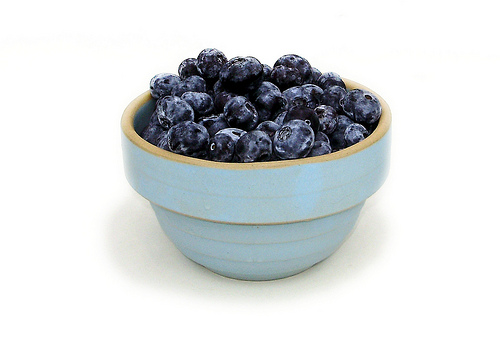
Vitamin-Packed Blueberries
Blueberries are rich sources of vitamins and packed with age-reversing antioxidants. Regular intake of blueberry juice may help improve learning, memory and concentration. Blueberries have also been found to have a beneficial effect on depression and stress. They may help reduce the symptoms of depression, reduce the damaging effects of stress on your brain, and improve your mood in general. The rich antioxidant content protects the brain cells from the damaging effects of free radicals. Blueberries are especially helpful for the aging brain and may prevent age-related memory loss. It may also bring about improvements in motor control and coordination and cognition in the elderly.
- Important notification about information and brand names used in this slideshow!
- Photo courtesy of Robert Benner by Flickr : www.flickr.com/photos/mullica/6021953050/

Supplements For The Brain
Along with consuming foods that are rich in nutrients that promote brain health, you can consider taking supplements for improving memory and enhancing your mood. You can always consider taking supplements of omega-3 fatty acids, flavanols, and caffeine to boost your cognitive abilities. Alternatively, there are certain herbs which have been used to enhance memory and mood since ancient times. Gingko biloba is one such herb which has been found to improve memory and concentration and may also help in preventing cognitive decline in the aging brain. Other herbs considered to be good for the brain include bacopa monnieri, Asian ginseng, Rhodiola rosea, and Spanish sage.
- Important notification about information and brand names used in this slideshow!
- Photo courtesy of Clean Wal-Mart by Flickr : www.flickr.com/photos/cleanwalmart/419584946/

Vitamins And Minerals
Eating whole grain foods, fruits and vegetables has a positive influence on your memory and mood because of their rich vitamin and mineral content. The B vitamins, especially B12, folate and B6, are particularly useful for preserving cognitive abilities and uplifting your mood. While folate improves mental alertness, focus, and memory, B6 has been found to promote the production of serotonin and dopamine, brain chemicals that are powerful mood enhancers. Another powerful brain vitamin is vitamin E. Its antioxidant powers prevent the brain from free radical damage and thus prevents cognitive decline and memory impairment in the aging brain. Among minerals, magnesium is considered to be a powerful nutrient for the brain since it protects it from neurotoxins.
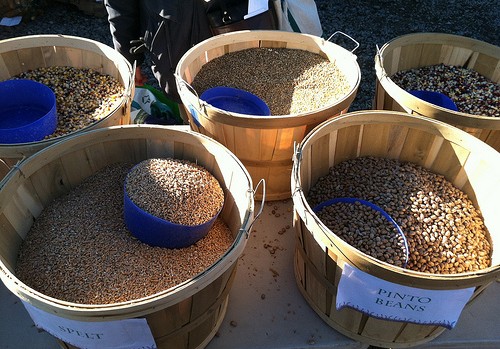
Preserve Your Brain With Whole Grains
Regular consumption of whole grain foods may prevent cognitive decline and memory loss. Whole grain foods such as brown rice, whole-wheat pasta, and whole-grain breads are rich in dietary fiber which may be responsible for the positive effects on memory and mood. Whole grain foods have not been processed or refined. This means that the dietary fiber in these foods remains intact. High dietary fiber slows down the digestion of food which ensures that the body and the brain gets a slow and steady supply of glucose to carry out its normal functions. Besides being rich in dietary fibers, whole grain foods are also packed with vitamins and antioxidants which prevent the brain from free radical damage, thus, preventing cognitive decline and memory impairment.
- Important notification about information and brand names used in this slideshow!
- Photo courtesy of wayne marshall by Flickr : www.flickr.com/photos/wayneandwax/8338928609/



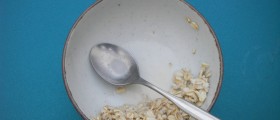














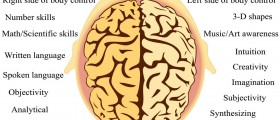







Your thoughts on this
Loading...